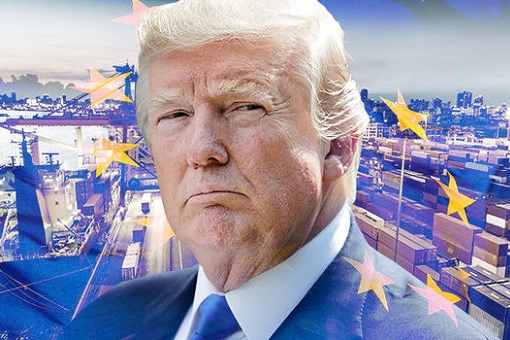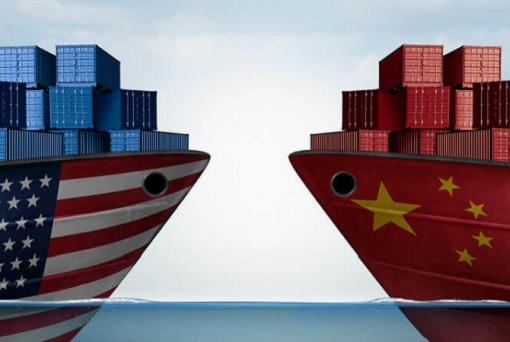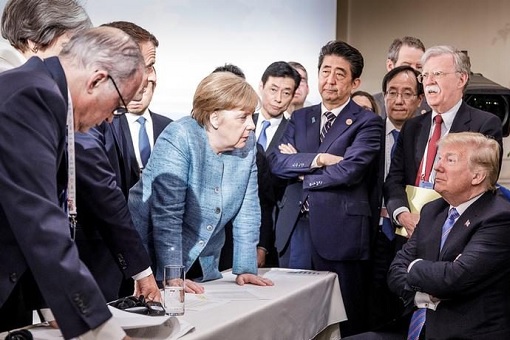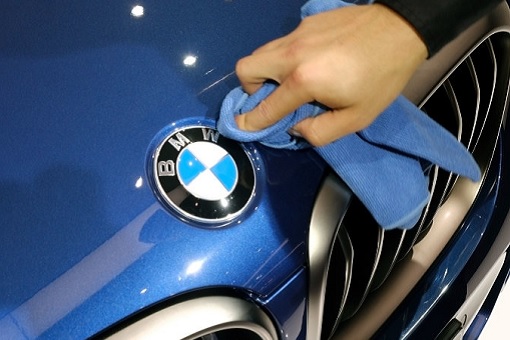European Union (EU) had a trade surplus of 120 billion Euros (US$139.6 billion) with the U.S. in 2017. The most exported product from the EU to the U.S. is cars. Hence, Trump doesn’t need to become a rocket scientist to know where to hit the Europe. When the U.S. president threatened to target European cars with 20% tariff, all hell broke loose.
Trump’s tweet to target imported autos from the EU immediately sent shares of automakers Daimler, BMW, Volkswagen and Fiat Chrysler lower. The EU country to be hit the most is obviously Germany where its trade surplus with the U.S. was US$64 billion. Trump proudly declares that his biggest weapon to extract concessions from trading partners is to impose global auto tariffs.
Trump said – “We can talk steel, we talk everything. But the big thing is cars.” He criticized that Europe was as bad as China when it came to trade. The EU imposes a 10% tariff on US-built cars, while the US levies only a 2.5% tariff on cars assembled in Europe and a 25% tariff on European-built vans and pick-up trucks. But the EU countered that the U.S. was a winner too.

Based on the EU commission analysis report, European carmakers in the United States produce 2.9 million cars (about 26% of US production) – supporting 120,000 U.S. manufacturing jobs and 420,000 dealership jobs. EU-owned companies in the US export 60% of their production, and in the process helping the country’s trade balance.
Two days ago, the EU warned that President Donald Trump will put a “tax on the American people” if he goes ahead with a threat to hit European carmakers with punitive tariffs. The European commission said Trump’s tariffs would be “self-defeating and would weaken the U.S. economy”, and has threatened that almost US$300 billion (£228 billion) worth of U.S. goods could be hit by countermeasures.
In May, the U.S. government launched an investigation into imports of automobiles – known as Section 232 – to determine whether the imports are hurting US national security. It’s the same tactic and method used by the Trump administration before it slapped tariffs on steel and aluminium imports earlier this year. The EU, however, said the US investigation “lacks legitimacy, factual basis and violates international trade rules.”

China has also suffered the same fate as the EU as far as Section 232 is concerned. China, the European Union, Canada and Mexico have all threatened retaliatory measures. With the clock ticking with US$34 billion of U.S. tariffs on Chinese imports due to come into force on July 6 (tomorrow), all eyes are on China whether they will retaliate in kind, or let Trump has his cake and eat it too.
Knowing Trump, the EU realises the threat of auto tariffs is real and not rhetoric. German Chancellor Angela Merkel isn’t taking any chances and has actually raised the trade war a few notches to a new level – a new global financial crisis. In an address to Germany’s lower house of parliament on Wednesday, Merkel raised the alarm that Germany will be hit the hardest.
She is urging serious efforts to be taken by the European Union and U.S. negotiators to reach a deal this month. Time is a commodity that the EU doesn’t have. Trump is expected to announce his decision on car tariffs before the midterm elections in November, in a bid to boost the chances of Republican candidates running for Congress and in state elections.

The EU has begun rolling out tariffs on American imports like bourbon, blue jeans, peanut butter, orange juice and motorcycles about a week ago. The tariffs on US$3.4 billion worth of U.S. products are retaliation for duties the Trump administration is imposing on European steel and aluminium. One of those hit in the cross-hair was American iconic brand Harley-Davidson.
Harley-Davidson, to Trump’s surprise and anger, has instead decided to shift production from the U.S. to international facilities (such as Brazil, India, Australia and Thailand) to avoid the EU tariffs. Still, President Trump refused to be intimidated with Harley-Davidson’s action of “waving white flag”. It only makes him more determine to slap EU with auto tariffs.
Terrified of Trump’s next move, the European Union is pro-actively looking at whether it can work out a tariff deal between the world’s biggest car exporters in an effort to avoid an all-out trade war with the U.S. Officials from the bloc are reportedly exploring the idea of international talks with countries such as the U.S., Japan and South Korea to come up with a “plurilateral” deal.

Under such a deal, participants would reduce tariffs to agreed levels for a specified set of products – without including the entire membership of the WTO. That agreement could fix certain issues such as auto-sector products. The idea was to have a deal which could cool President Donald Trump’s complaints that other nations are taking advantage of the U.S. in trade.
Other Articles That May Interest You …
- Forget Tariff, Now Trump Has Threatened – 100 Times – To Withdraw U.S. From WTO
- Trump Has 2 Ways To Stop China From Becoming A Global Leader In Technology
- Trump Threatens China With $200 Billion Tariffs – Here’re 3 Options On The Table For China
- This Photo Says It All – G7 Summit In Chaos As Trump Refuses To Listen, Happily Clashes With Ally Nations
- The Enemy Of My Enemy Is My Friend – China Plans To Gang Up With U.S. Allies Against Trump’s Trade War
- Forget China, E.U. Threatens U.S. With Trade War – Targeting Harley-Davidson & Jack Daniels
- China Reveals Strategy To Fight U.S. Trade War – Stop Buying American Debt
- China Invasion – Top 10 American Iconic Brands Now Owned By Chinese

|
|
July 5th, 2018 by financetwitter
|


|

|

|

|

|

|




























Comments
Add your comment now.
Leave a Reply